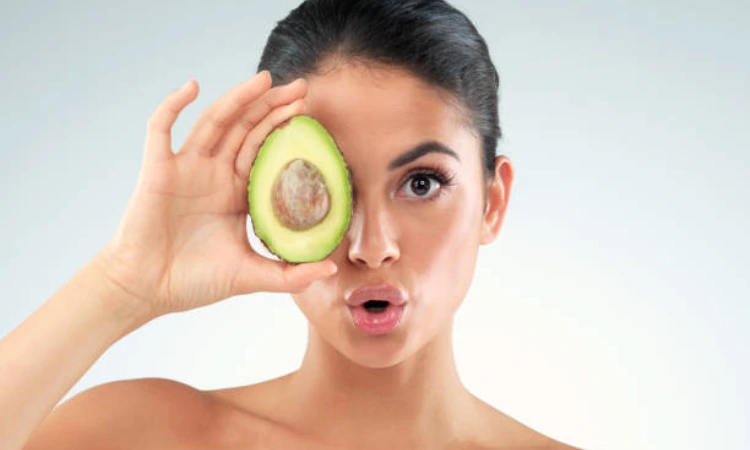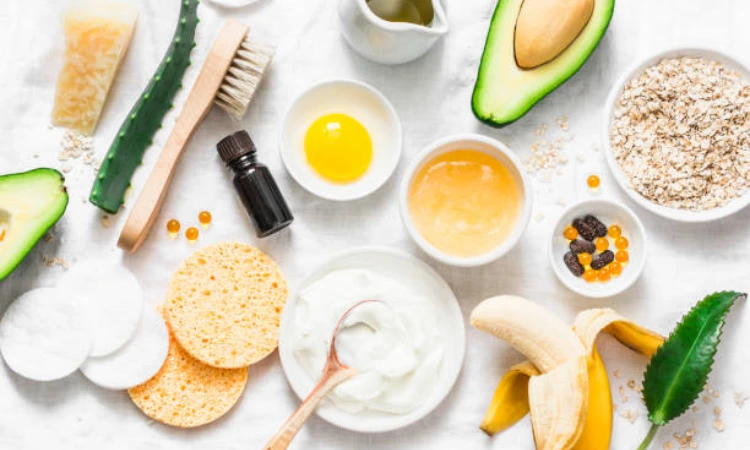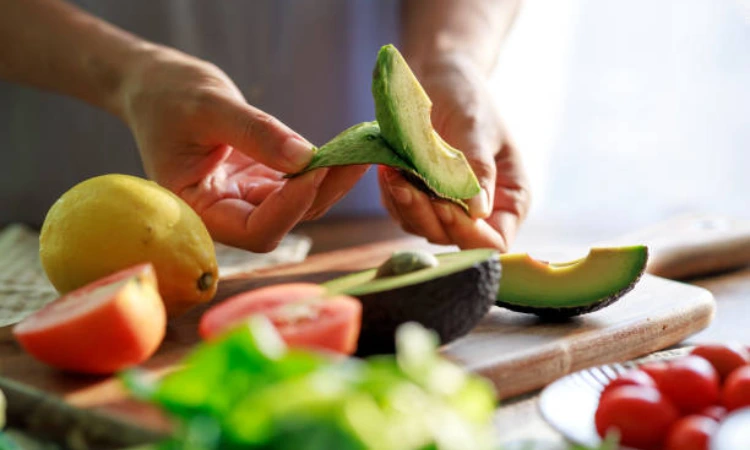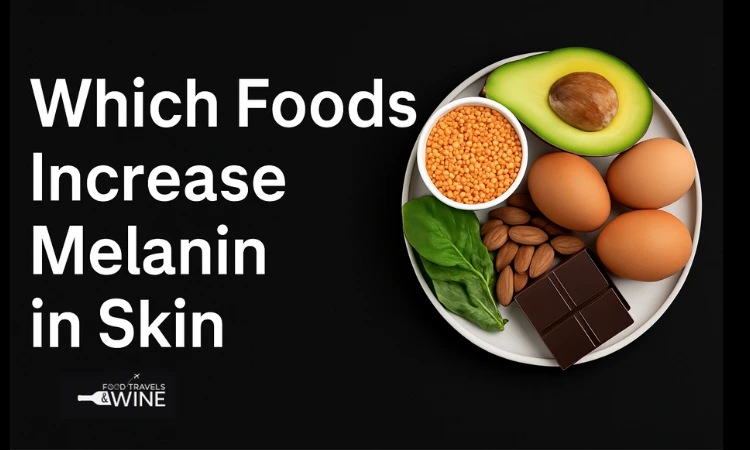Can You Really Boost Melanin Through Food? Yes, you can boost melanin naturally—and your diet plays a big role in that.
Melanin is the pigment that gives your skin its color. But it’s not just about appearance. Melanin also helps protect your skin from sun damage and supports overall skin health.
Now, if you’re wondering which food increase melanin in skin, the answer lies in nutrient-rich choices.
Certain foods are packed with vitamins, minerals, and antioxidants that help your body increase melanin production naturally. Think leafy greens, nuts, seeds, and fruits—simple items you can easily add to your daily meals.
This guide will break down everything you need to know. From food that increases melanin to tips for getting better skin tone without chemicals—we’ve got it all.
Whether you’re looking to balance your skin tone or just want a natural glow, you’re in the right place.
What Is Melanin and Why Is It Important for Skin?
Melanin is a natural pigment found in your skin, eyes, and hair. It gives your body its unique color and plays a vital role in protecting your skin.
The more melanin your body produces, the darker your skin tone tends to be. But beyond appearance, melanin has real benefits—especially for skin health.
One of its most important roles is natural sun protection. Melanin helps block harmful UV rays, reducing the risk of sunburn and skin damage.
This makes it incredibly valuable for everyone, but especially for people with lighter skin or those prone to sun sensitivity.

For people with pigmentation issues, like vitiligo or uneven skin tone, increasing melanin production can help bring balance back to their appearance. That’s why turning to melanin-rich foods and a proper diet for melanin can be helpful.
Choosing to increase melanin naturally is also safer than relying on chemical creams or artificial methods.
Nature already provides the best tools. From melanin boosting food to melanin enhancing foods, the right diet can gently support your body without harm. It’s a smart and natural way to care for your skin—from the inside out.
Which Nutrients Are Needed for Melanin Production?
Certain vitamins and minerals help your body make melanin naturally. Let’s explore what your skin needs.
Tyrosinase Enzyme
This enzyme kicks off melanin creation. Without it, melanin can’t form—even if your diet is perfect.
Copper
Copper activates tyrosinase and supports a melanin boosting diet plan. Nuts, seeds, and leafy greens are great sources.
Vitamin B12
Low B12 levels can lead to skin discoloration. Eggs, dairy, and fish help restore melanin balance.
Folic Acid
This B vitamin supports healthy skin cells and improves natural sources of melanin in food effectiveness through better absorption.
Antioxidants
Antioxidants protect skin from damage and help keep melanin active. Blueberries, spinach, and green tea are excellent choices.
Iron and Zinc
These are often overlooked but critical. They improve blood flow and support which vitamins help in melanin production.
Top 12 Melanin-Boosting Foods to Add to Your Diet:
If you’re looking for foods that help produce melanin in skin naturally, this list has everything—from plant-based melanin sources to options perfect for a vitiligo diet.

Lentils and Legumes
Packed with iron, zinc, and protein, lentils and beans are great foods for melanin deficiency. They help improve pigmentation and nourish your skin from the inside. Easy to add to soups or salads.
Leafy Greens (Spinach, Kale)
These greens are loaded with folate, iron, and antioxidants—perfect foods good for skin pigmentation. They support nutrients for melanin regeneration and are excellent plant-based melanin sources you can enjoy daily in smoothies or stir-fries.
Dark Chocolate (Contains Copper)
Dark chocolate is more than a treat. It contains copper, which helps activate enzymes needed for melanin production. A small piece a day is a delicious and helpful addition to your melanin boosting diet.
Nuts and Seeds (Almonds, Sunflower Seeds)
Rich in zinc, vitamin E, and copper, nuts and seeds are essential foods that increase melanin in the body. They also support healthy, glowing skin. Snack on them or sprinkle over meals.
Eggs and Dairy (Vitamin B12)
Vitamin B12 is key in treating pigmentation issues. Eggs and dairy improve melanin balance naturally, especially in people with B12 deficiencies. A strong choice for your vitiligo diet or melanin boosting meal plan.
Berries (Antioxidants)
Strawberries, blueberries, and raspberries are rich in antioxidants. They protect melanin from breaking down and improve skin tone. Berries are top skin pigmentation foods that also slow signs of aging.
Sweet Potatoes (Beta-Carotene)
These are full of beta-carotene, which supports melanin activity and skin health. Great for glowing skin and sun protection. A smart answer to how to increase melanin through diet the natural way.
Avocados
Avocados are loaded with healthy fats, vitamin E, and antioxidants. They hydrate your skin and enhance melanin effectiveness. Their nutrients help balance uneven tones and improve skin texture over time.
Liver or Organ Meats (Iron + Folate)
These are powerhouse sources of iron and folate, ideal for people facing melanin loss. Just one serving a week can support food for melanin deficiency and promote healthier pigmentation.
Mushrooms (Vitamin D + Copper)
Mushrooms help your body absorb nutrients better, including those tied to melanin production. They’re especially helpful if you have limited sun exposure. A perfect food for skin health and tone improvement.
Citrus Fruits (Support Iron Absorption)
Oranges, lemons, and limes don’t boost melanin directly but help your body absorb iron—crucial for pigmentation. Add them to meals to boost the effect of other melanin enhancing foods.
Green Tea
This is one of the top herbal remedies for melanin support. It contains catechins—antioxidants that protect existing melanin and fight oxidative stress. A soothing, daily drink that supports healthy, glowing skin.
What to Avoid: Foods That Can Disrupt Melanin Production
Boosting melanin isn’t just about eating the right foods—it’s also about avoiding the wrong ones. Some everyday habits can block the tyrosinase enzyme or reduce vitamin B12 and melanin.
Highly Processed Foods
Packaged snacks and frozen meals lack copper-rich foods for skin and often contain preservatives that block nutrient absorption. They can interfere with folic acid for pigmentation and lower your skin’s natural melanin balance.
Excess Sugar and Fried Items
Too much sugar and fried food cause inflammation and oxidative stress. This weakens antioxidants and melanin connection in your body. A sugary diet can also block vitamin B12 and melanin interaction.
Lack of Micronutrients
Skipping whole foods leads to vitamin and mineral gaps—especially in zinc, copper, and B12. Without those, melanin supplements won’t help much. Natural nutrients + sun exposure and melanin work best together.
How Does Sunlight and Food Work Together for Melanin?
Sunlight triggers melanin production in your skin, but without proper nutrients, your skin can’t produce enough melanin to respond effectively.
The tyrosinase enzyme plays a crucial role in this process, and it needs the right fuel. Copper-rich foods and melanin-boosting vegetables help enhance melanin production, while antioxidants protect it.

A skin color diet full of vitamins for melanin will support this process, allowing you to achieve a brown skin glow naturally.
Remember, balance is key: combine safe sun exposure with melanin superfoods for optimal results in your pigmentation healing diet.
Melanin Myths You Should Stop Believing:
There are plenty of melanin myths out there that can mislead you. It’s time to clear them up, so you can focus on what really works for boosting melanin.
“Only Sunlight Matters” – FALSE
While sunlight triggers melanin production, it’s not the only factor. Without the right copper-rich foods and vitamins for melanin, your skin won’t produce enough melanin. A balanced diet is crucial to enhancing the effects of sun exposure.
“Dark Foods Equal Dark Skin” – Misleading
Not all dark-colored foods increase melanin. For example, eating too much dark chocolate won’t automatically make your skin darker. What really works is consuming foods rich in specific nutrients like folic acid for pigmentation and antioxidants.
“Supplements Work Better Than Food” – Not Always True
While melanin supplements can help, they don’t replace a nutrient-rich diet. Whole foods like melanin-boosting vegetables offer a range of vitamins and minerals that work together for better absorption and effectiveness.
Special Diet Tips for People with Vitiligo:
For people with vitiligo, diet plays a crucial role in managing the condition. Focusing on the right nutrients can support melanin production and skin health.
Focus on Copper-Rich Foods
Copper is essential for melanin production. Including copper-rich foods like nuts, seeds, and leafy greens helps stimulate the tyrosinase enzyme necessary for melanin synthesis. This can enhance pigmentation in areas affected by vitiligo.
Avoid Trigger Foods (Like Gluten, in Some Cases)
Some people with vitiligo find that gluten or other inflammatory foods worsen their skin condition. Avoiding processed foods, gluten, and foods that may trigger inflammation can help prevent further damage and support your body’s natural ability to produce melanin.
Boost Gut Health for Better Nutrient Absorption
A healthy gut ensures that your body absorbs the nutrients needed for melanin production, such as vitamins for melanin. Adding probiotics, fiber, and gut-friendly foods to your diet can support nutrient absorption and overall skin health.
Simple Weekly Meal Plan for Boosting Melanin Naturally:
Creating a weekly meal plan that focuses on melanin-boosting foods is a great way to ensure consistent intake of nutrients. Here’s a plan with both vegetarian & non-vegetarian options.

Breakfast Ideas
- Vegetarian: A smoothie with spinach, berries, and chia seeds (rich in antioxidants and vitamins for melanin).
- Non-Vegetarian: Scrambled eggs with spinach and mushrooms, paired with a side of avocado (providing copper-rich foods and vitamin D).
Lunch Ideas
- Vegetarian: Quinoa salad with kale, chickpeas, and avocado (packed with melanin-boosting vegetables).
- Non-Vegetarian: Grilled chicken salad with mixed greens, sweet potatoes, and a citrus dressing (loaded with beta-carotene and vitamin C to enhance melanin production).
Dinner Ideas
- Vegetarian: Stir-fried tofu with broccoli, bell peppers, and sesame seeds (rich in iron and copper-rich foods for skin).
- Non-Vegetarian: Grilled salmon with roasted sweet potatoes and sautéed spinach (full of omega-3 and melanin-boosting nutrients).
Conclusion: Which Food Increase Melanin in Skin?
To increase melanin naturally, focus on eating smart, not extreme. Food that increases melanin, along with consistent sun exposure, hydration, and skincare, can lead to lasting changes. Remember, natural transformations take time, but they are worth it for healthier melanin in skin and long-term results.
How I Helped My Friend Boost Her Melanin Naturally Through Food – A Proven, Personal Experience
I watched my friend struggle with uneven skin tone for months. Using my own research and food knowledge, I helped her follow a melanin-rich diet. Within weeks, we saw real improvement!
Every tip in this FTW Food guide, I gave is based on science—these are all proven, natural methods that truly work.
What to eat to get more melanin?
Eat copper-rich foods, leafy greens, berries, eggs, and sweet potatoes to support melanin production naturally.
How to increase melanin without sun?
Consume melanin-boosting foods like spinach, dark chocolate, and avocados, rich in necessary vitamins and minerals.
How to prevent melanin loss?
Avoid excessive sun exposure, eat nutrient-rich foods, and maintain a balanced diet for healthy pigmentation.
Does food affect skin color?
Yes, foods rich in vitamins and minerals like copper, vitamin C, and beta-carotene can influence skin pigmentation.
Which fruit increases melanin?
Fruits like berries, oranges, and papayas are rich in antioxidants and vitamin C, supporting melanin production.
Vegetables that boost skin melanin?
Spinach, kale, and sweet potatoes are packed with nutrients like beta-carotene that promote melanin synthesis.
Can food make skin darker?
Yes, foods rich in beta-carotene (like sweet potatoes and carrots) can enhance melanin, potentially darkening skin.
How to get a natural tan through food?
Consume foods high in vitamin C and beta-carotene, like tomatoes, spinach, and carrots, to boost melanin naturally.
Best diet for brown skin glow?
A diet rich in vitamin C, copper, beta-carotene, and antioxidants (like citrus, leafy greens, and nuts) supports glowing skin.

